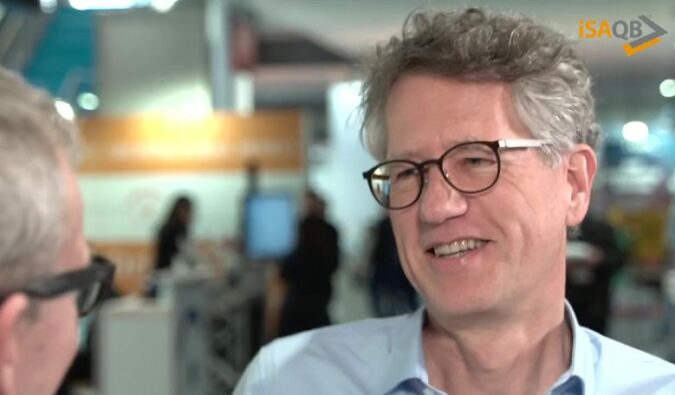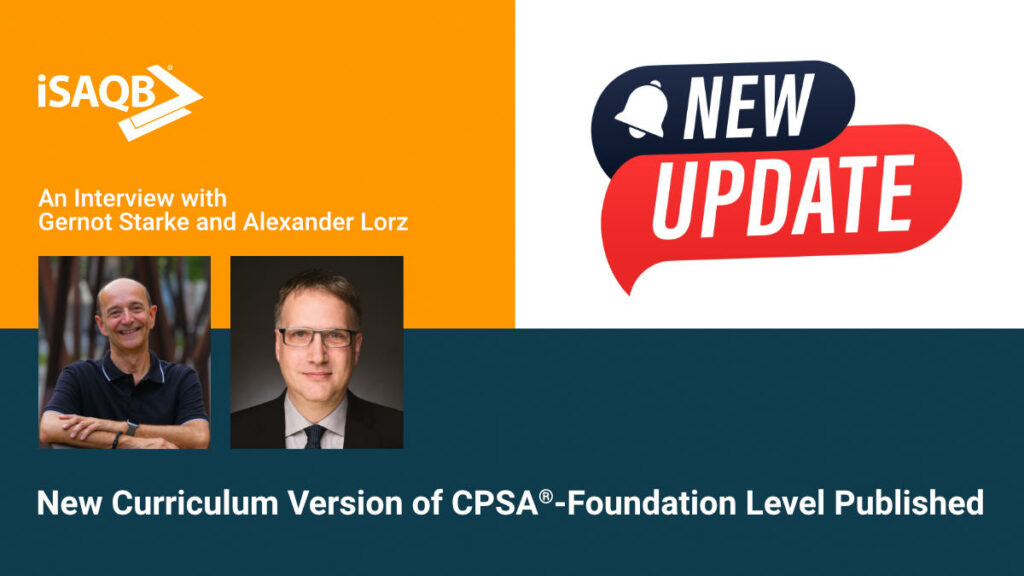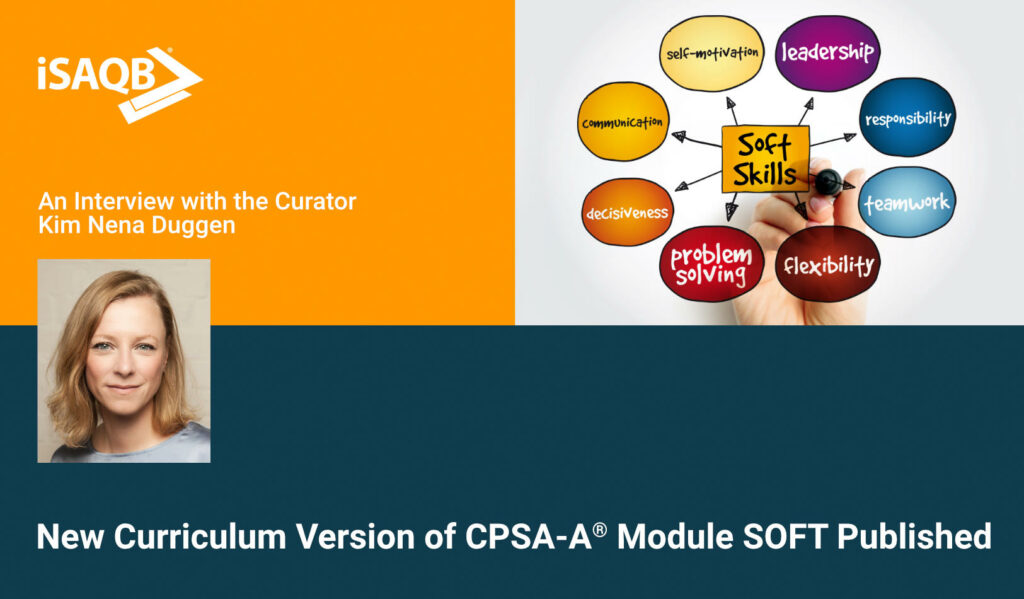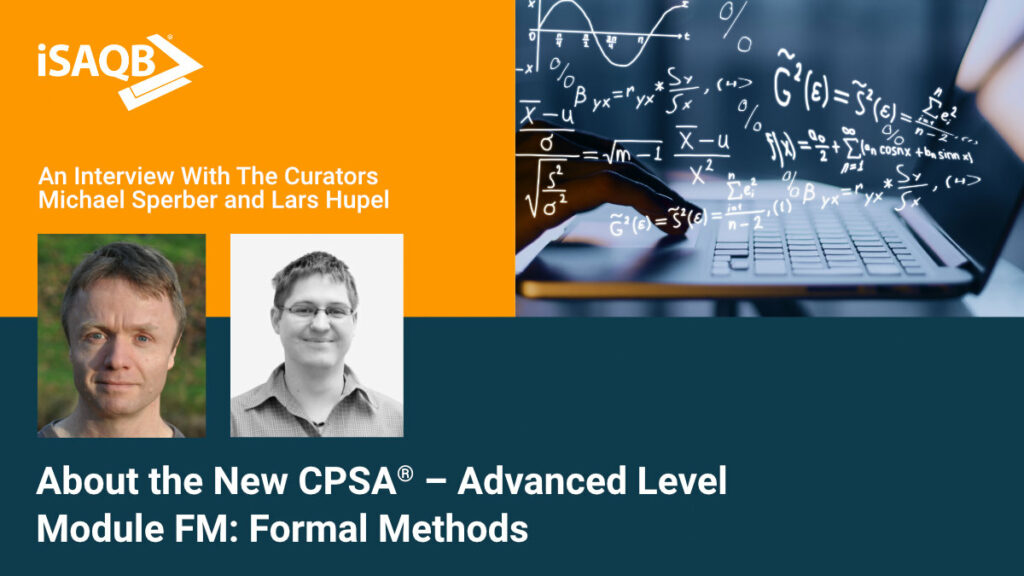Quality Assurance of CPSA Trainings by the iSAQB
Interview with Prof. Dr. Gerhard Wanner at the OOP conference 2020 in Munich
Christoph Witte: Hello, my name is Christoph Witte. I’m a freelance IT journalist, and I’m here at the booth of the international Software Architecture Qualification Board at the OOP conference in Munich. I want to talk to Gerhard Wanner. He’s a professor at the University of Applied Sciences Stuttgart, and he’s teaching students in software engineering, software architecture, and software modelling. And besides that, he’s an active member of the iSAQB. Gerhard, what is your role in the iSAQB?
Gerhard Wanner: Hello Christoph. My role in the iSAQB – I am a member of the working group Audit, and we are auditing different things concerning the iSAQB.
Christoph Witte: And what is your actual role? Can you describe that a little bit?
Gerhard Wanner: We are doing three things mainly there. We do accreditation for course materials, accreditation for trainers, and we do audits for on-site trainings.
Christoph Witte: Okay. Can you give us some examples of what you do there exactly to give our viewers a glimpse of your work?
Gerhard Wanner: Well, when we look at the course material, we check if it is compliant to the curriculum, for example. We check if the estimated time for the different parts is as we planned in the curriculum and things like that. When we audit a trainer, we look at the CV of the trainer. And if we think we have some additional questions, we also interview the trainer to find out if he or she is able to hold the course in a way that we want it to be held.
Christoph Witte: And the on-site trainings – are you some kind of quality rangers coming to the training?
Gerhard Wanner: No, we are not quality rangers. We are also not the police. We go on site to the trainings. Usually, we do one day on-site, we go to the training itself for half a day and look what the trainer does. How are the trainer’s didactics, for example? We look at the course material again, we participate in the exercises and look how the exercises are done by the trainer. We talk to the participants, to two of them at least, and ask them about their opinion of the course. We talk with the training provider and the people that are organizing the training. We look at the site itself, the training facilities, and give a comprehensive view back to the trainer, and the training provider.
Christoph Witte: Okay. Why are the audits so important?
Gerhard Wanner: I think it’s all about quality. It’s very important that, if you go to a training, you can be sure that it is of high quality, and we ensure that by doing all those audits and accreditations. So that you can be sure that if you book a course with the iSAQB, it will have a very high quality.
Christoph Witte: Okay. And what are the most obvious signals or indicators for quality?
Gerhard Wanner: If we look at the training material, for example, it really must follow the curriculum. It does not make sense if the course is different to what we think should be included in the topics. Then, it’s the exercises. They should be done in a way to really help understand the topic. The trainers themselves are very important. You can still do bad trainings with good material if the trainer is not good. So, it’s really important to have the best people do the trainings.
Christoph Witte: But it is not working the other way round – that you’re getting good courses with a good trainer, but bad material?
Gerhard Wanner: I think that probably works, but it’s not what we intend.
Christoph Witte: Okay. Last question. You are a professor at a university, teaching very serious people in computer science. And why should those people, who studied at your university for three years, do the courses as well?
Gerhard Wanner: At university we lay a foundation, we give courses in programming, software engineering and things like that. And usually then, after studying, they go and start their professional life. They do some projects, get experience there. And then it’s time to get deeper into specific things. Specialize as a software architect, for example, or go in a specific direction. And that’s the place where the iSAQB can help, by offering the right courses. Foundation sure is a starting point, but then with the Advanced Level modules you can really focus on a specific topic, and go into detail much more, compared to what we are able to do at the university.
Christoph Witte: Okay, thank you very much, Gerhard.
Gerhard Wanner: Thank you.
Christoph Witte: And thank you for your time. We were talking about quality assurance in the iSAQB, and I think Gerhard showed us very intensively how quality assurance works in this association. Thank you very much.
Watch the full interview here:
Share this article:
Related Posts
About the Author
Featured in this article












